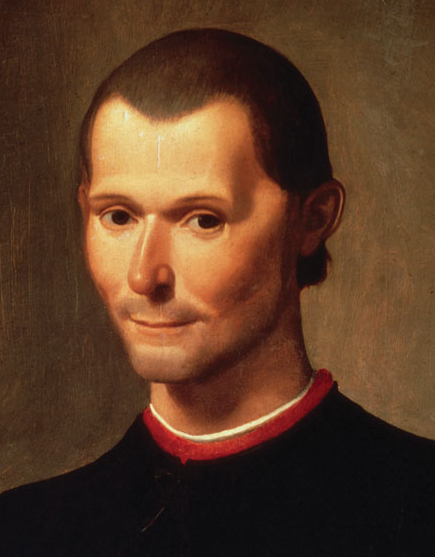
Your complimentary articles
You’ve read one of your four complimentary articles for this month.
You can read four articles free per month. To have complete access to the thousands of philosophy articles on this site, please
Philosophical Haiku
Niccolò Machiavelli (1469-1527)
by Terence Green
Better to be feared
Than seek friendship through kindness.
A prince has no friends

Portrait of Machiavelli by Santi Di Tito
Today his name is associated with all that’s dirty, underhanded and despicable in politics. We even call the Devil ‘Old Nick’ after him. But Niccolo Machiavelli was actually a really nice guy. As Rousseau said of him, he was ‘an honest man and a good citizen’ – and given Rousseau didn’t think much of anyone, that’s high praise. So why the low reputation?
Born in Florence at yet another time of upheaval, tumult, and war in Italy, Machiavelli witnessed first-hand the ways of man, and he wasn’t impressed. By the age of twenty-nine he held a leading position in the Florentine government, and so got to know some of the movers and shakers of the time, including Cesare Borgia, the Holy Roman Emperor Maximilian, and Pope Julius II.
Matters turned sour for Machiavelli when the Medicis invaded and reclaimed control of Florence in 1512. The following year Machiavelli was accused of conspiracy, imprisoned, and tortured. He refused to admit to anything and was released, after which he retired to his estate to contemplate politics and rehabilitate his dislocated shoulders. Reflecting on all he’d seen, he put his thoughts into his short book Il Principe (The Prince, 1532). In this work he said that although it might be an admirably optimistic ideal that rulers should be seen as the embodiment of virtue, the reality is such that any ruler who actually is the embodiment of virtue will be gone before dinner time – to be replaced by someone more realistic about politics. This isn’t something to be happy about, said Machiavelli, but there’s nothing to be gained in denying it, and everything to be lost. People are, Machiavelli lamented, “ungrateful, fickle, liars and deceivers” who “shun danger and are greedy for profit.” Things haven’t changed much, then.
© Terence Green 2022
Terence Green is a writer, historian, and lecturer who lives in Eastbourne, New Zealand.









